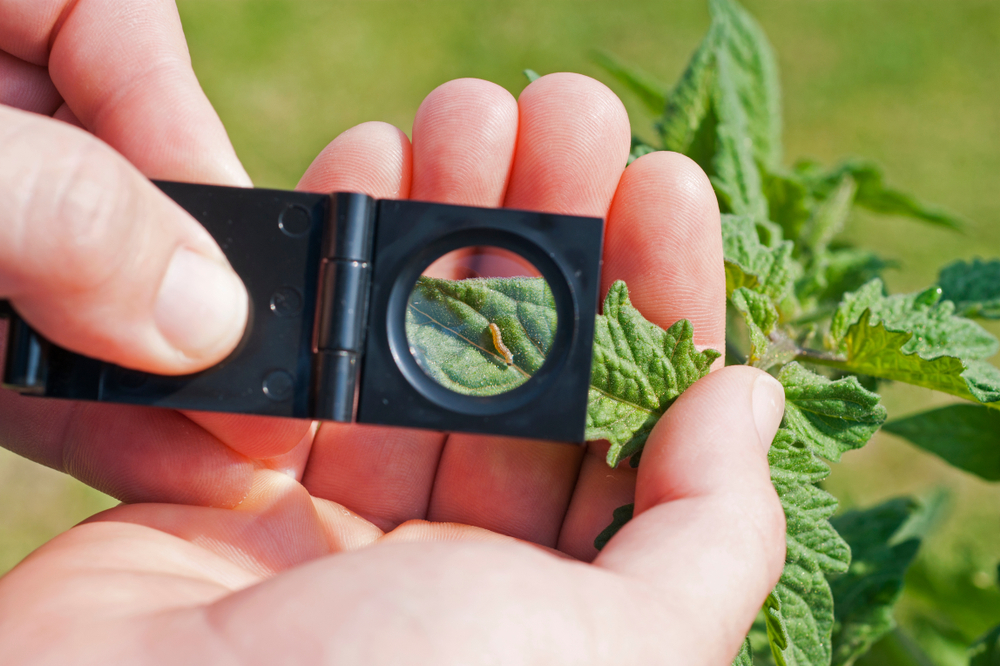The human race shares this planet with billions of different plant, animal, and insect species — and many of them have become pests that can negatively impact our lives. No one likes seeing a cockroach climbing their wall or the signs of a rat in their pantry, but sometimes keeping them away can be more dangerous than the damage they are capable of doing. Getting the materials, you need to manage your pests can be challenging if you’re living off the grid.
In this case, the best solution is to create a comprehensive pest management strategy for your entire homestead. What should this strategy look like and what will it take to prevent pests from affecting your life?
Defining Pest
The dictionary defines a pest as “a destructive insect or other animals that attack crops, food, livestock, etc.” It can also be used to refer to any of these species that invade our homes, especially those that can directly or indirectly cause harm. Conversely, the term can be applied to an annoying person, but we’re going to skip that particular definition for the moment.
Pests are problematic for several reasons. They can destroy food supplies — those that are fresh in your garden and stored in your pantry. Some, such as termites and carpenter ants, can cause expensive damage to your home. Others, such as rats and cockroaches, get into everything and transmit diseases. Even some species you might not consider to fit the typical definition of pest can become so, such as birds destroying a crop or deer eating every leaf out of your garden.
The exact definition of pest for you will depend on what you’re trying to protect and where your homestead is located.
Identifying Pest Species in Your Area
The pests you have to contend with in one part of the world might be entirely different from those that plague another. For example, Norway rats are common in Portland and Vancouver but might not be as frequently spotted in warmer or dryer climates. Large spiders and scorpions frequent arid parts of the world but don’t thrive nearly as well when the environment gets cold. Perpetually warm and wet regions are the perfect breeding ground for fruit flies and mosquitoes.
Take the time to identify the pests that might be present in your area over an entire year. It might seem excessive, but like most things in life, they go through cycles and might be more active during specific parts of the year. Don’t put yourself at a disadvantage by assuming you know everything there is to know about pest control because you’ve spent a couple of weeks out in the wilderness.
Organic vs. Chemical Pest Management
Setting up a pest management strategy requires choosing between organic and chemical pest management strategies. Both have their positives and negatives. Chemical pesticides can be very effective, but they often do more damage in the long run. For example, using poison to kill rodents might seem like a quick and easy way to manage them. However, if that rat dies outside or consumes the poison and then is eaten by a predator or bird of prey, the rat poison will often sicken or kill that animal as well.
Organic pest control comes in various forms, from practices you can use to reduce the number of bugs in your area to steps you can take to discourage these creatures from inviting themselves into your home.
Here’s a closer look at some of these tools and practices.
Prevent Pest Buildup
Many behaviors on your homestead can encourage pests to take up residence, so it’s essential to avoid them if you want to keep your home safe. Something as simple as letting leaves build up in your rain gutters or piling up too much mulch beside your home can give these pests a place to set up shop. From there, it won’t be long before they make their way into the much more comfortable interior of your home, where there is food and warmth for them to enjoy.
Keep as much away from the exterior of your home as possible. This includes garbage and things like firewood you may need once the weather turns cold. Take a close look at your home’s exterior and see what might need to be addressed as you find a way to reduce the number of pests around your property.
Keep Your Garden Healthy
When a lion hunts a herd of gazelle, it doesn’t chase the healthiest or fastest animal. Instead, these predators focus on easy to separate from the group and devour. Your plants aren’t running away from any potential predators, but keeping them healthy can make them more resistant to pests or diseases that could negatively impact the crops.
Like the lions, pests are most often drawn to weak or sick plants before their healthier counterparts. Growing a garden full of weak or sickly crops isn’t going to get you the kind of harvest you want and should be avoided at all costs.
Plant Agricultural Companions
The concept of companion agriculture isn’t a new one. Native American farmers used to plant their corn, beans, and squash crops together, calling them the Three Sisters. The tall cornstalks provided a place for the beans to climb. The beans added necessary nitrogen to the soil, and the squash leaves were the perfect tool for protecting the bean plants from grazing animals and harsh sun. You might not have a need or desire to grow these three plants, but the concept of companion planting can be beneficial to keep pests under control.
Planting basil or parsley with your tomatoes or mint alongside your garden beds can help deter pests from munching on your plants without you worrying about adding chemical pesticides to the mix. If you decide to use mint as natural pest control, make sure it’s planted in its pot or raised bed. It is an incredibly fast-growing herb and will quickly take over anything it can get its roots into.
Conduct Everyday Maintenance
Many pests you might see in your garden or around your homestead can be handled with regular maintenance as you’re working outside. Tomato hornworms can strip an entire plant down to nothing in very little time, but they’re large enough that you can usually pick them off by hand. The worms are a great treat for your birds if you’re raising chickens.
This sort of daily monitoring and homestead maintenance can also help you spot small infestations or infections before they become big ones. Aphids can be a terrible problem in gardens, but they’re often easy to spot. If you catch them before they start devouring your entire garden, they’re easy to manage.
Accepting That Pests Exist
When it comes down to it, living on a homestead or anywhere on this planet means you will have to come to terms with the fact that pests exist and will likely make their way into your home. This doesn’t mean you should feel obligated to live alongside cockroaches and rats, but it does mean you will need to take steps to prevent them from making their home in yours.
The trick is to make your house inhospitable to them without making it the same for its human residents. Choose your plants carefully, don’t make it easy for them to set up shop, and stay on top of your regular homestead maintenance and household chores. There may be some rare cases when using chemical pesticides becomes necessary, but for the most part, you should be able to manage pests around your homestead with a bit of preparation and some elbow grease.






















































































